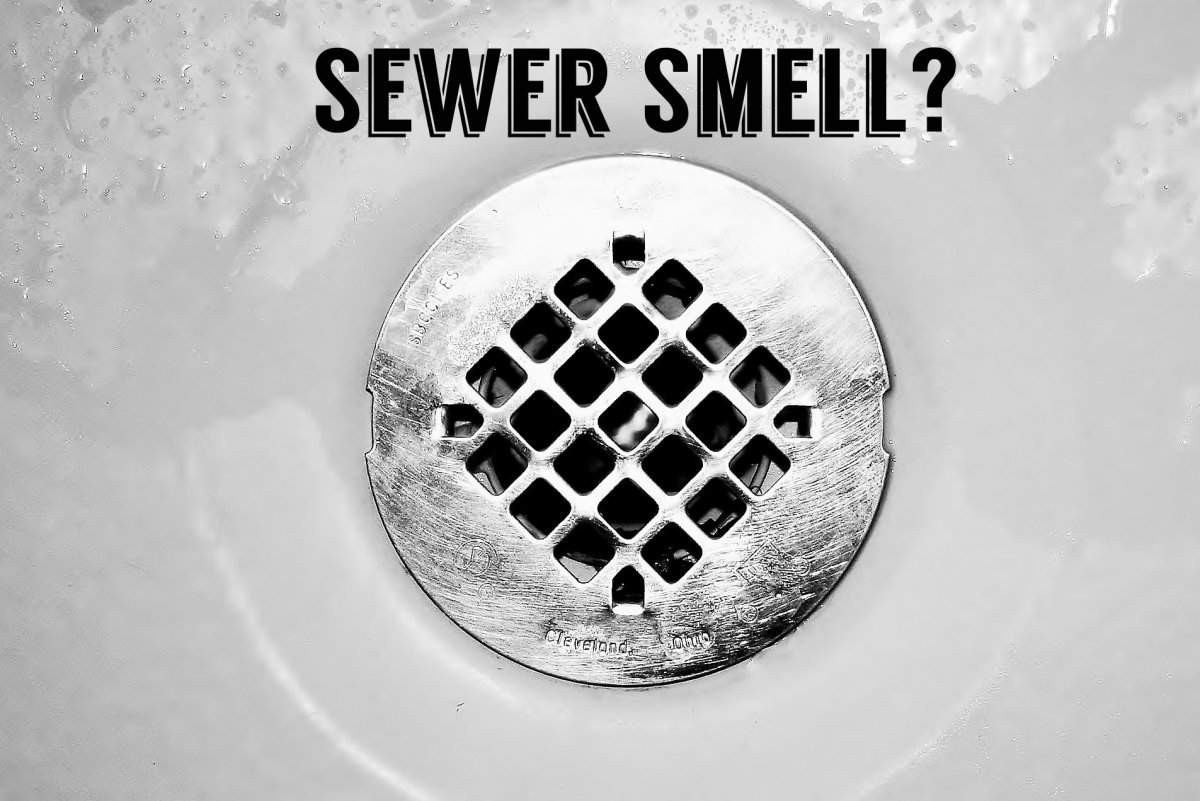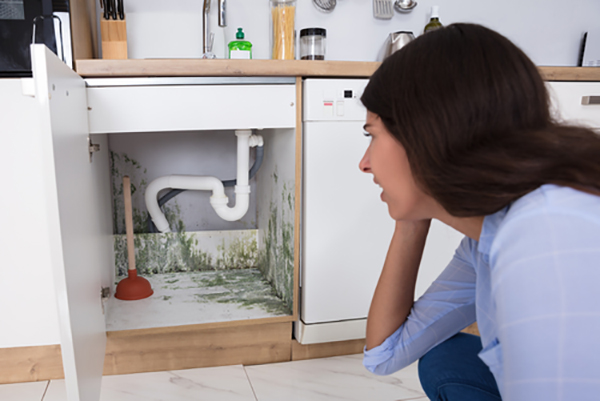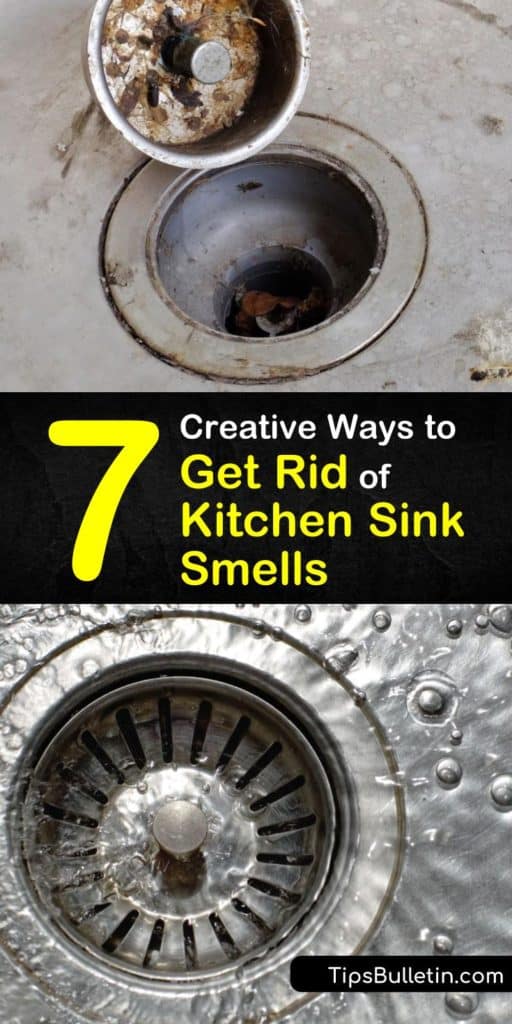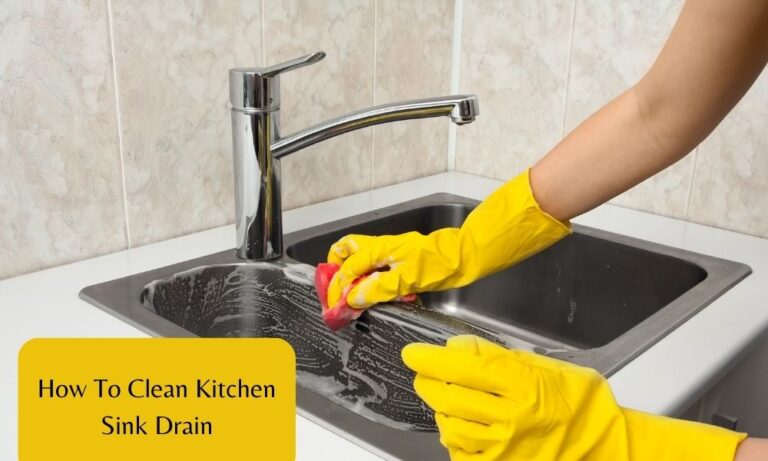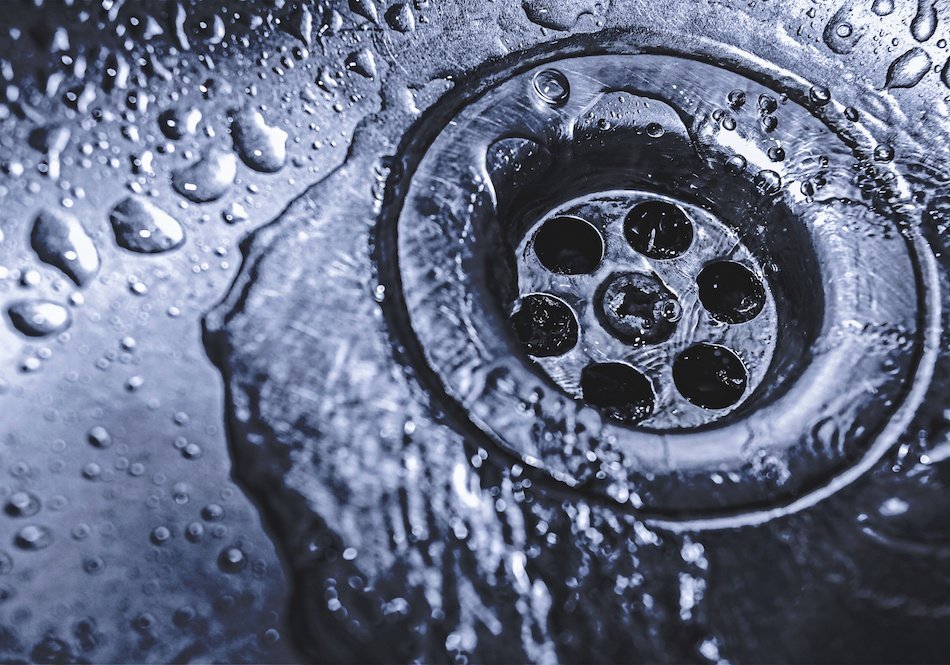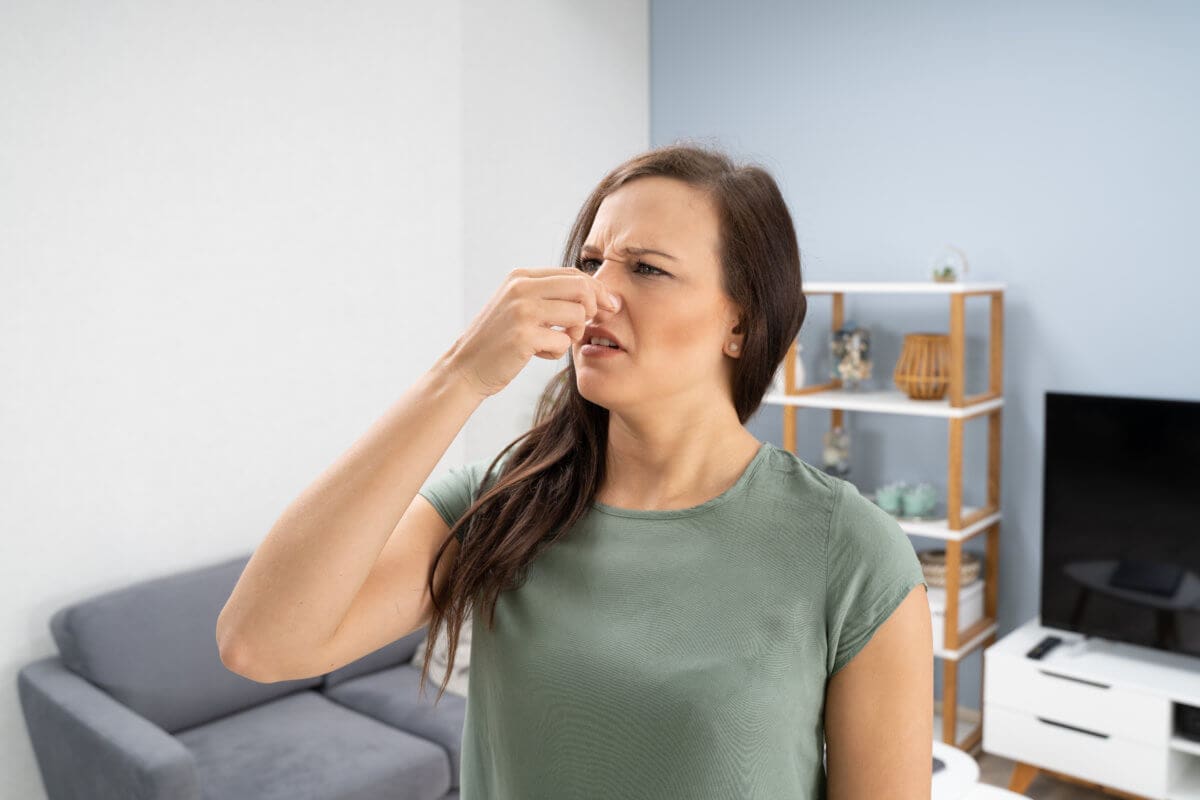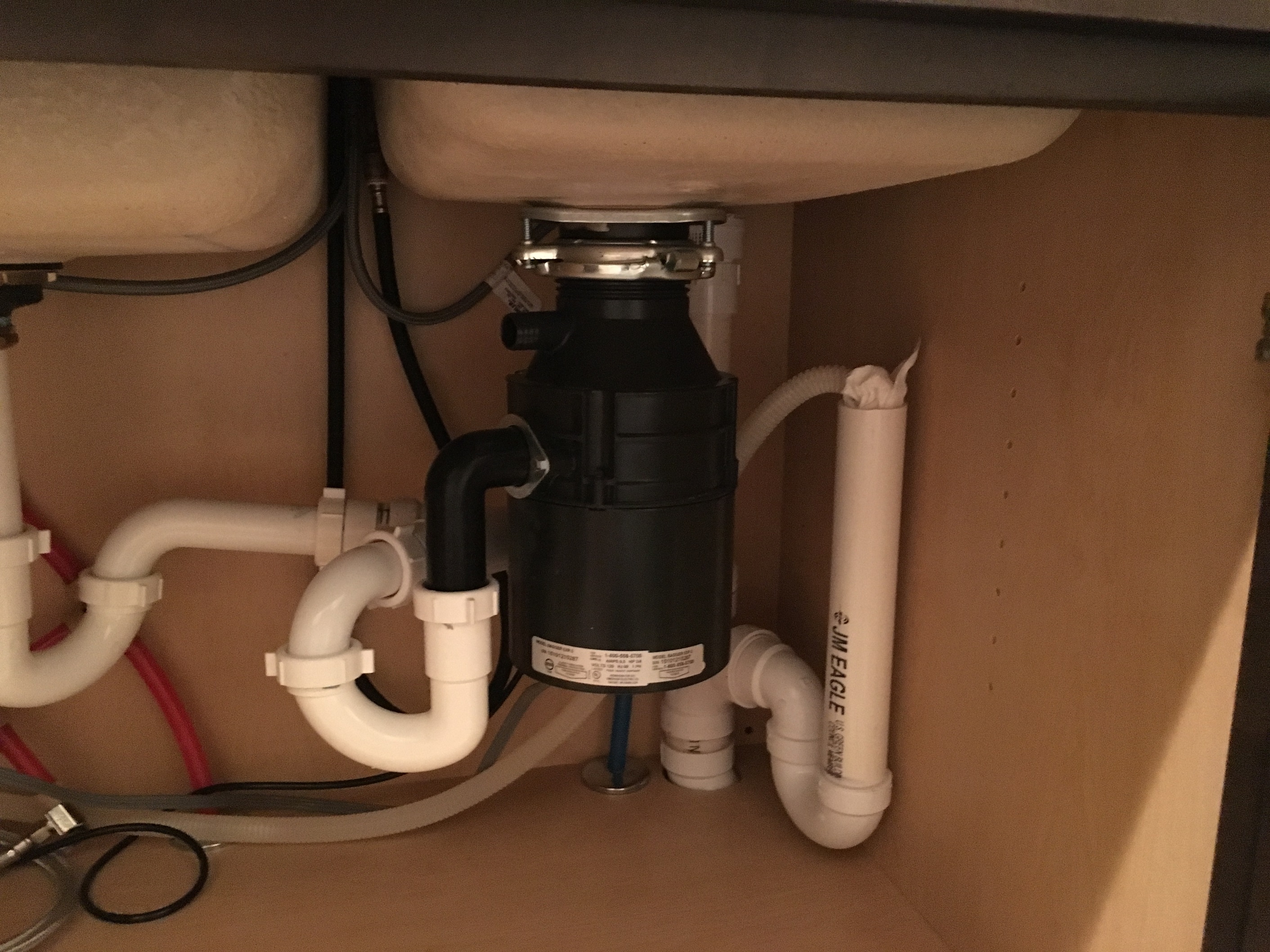A moldy smell in the kitchen sink drain can be caused by a number of factors. One of the main causes is a buildup of food particles and grease in the drain, which can create the perfect environment for mold and bacteria to grow. Another common cause is a clog in the drain, which can lead to standing water and a strong musty odor. In some cases, a moldy smell may also be a sign of a more serious plumbing issue, such as a broken or damaged pipe.1. Causes of a Moldy Smell in the Kitchen Sink Drain
If you're dealing with a moldy smell in your kitchen sink drain, there are several steps you can take to eliminate it. The first step is to thoroughly clean the drain and remove any buildup of food particles, grease, or other debris. You can use a mixture of baking soda and white vinegar to help loosen and remove any stubborn buildup. After cleaning, run hot water down the drain to flush out any remaining residue.2. How to Get Rid of a Moldy Smell in the Kitchen Sink Drain
If the moldy smell persists after cleaning, you can try some DIY solutions to help eliminate it. One option is to pour a cup of bleach down the drain and let it sit for 10-15 minutes before flushing it with hot water. You can also make a mixture of lemon juice and salt and pour it down the drain, followed by hot water, to help freshen and deodorize the drain.3. DIY Solutions for a Moldy Smell in the Kitchen Sink Drain
If the moldy smell in your kitchen sink drain is particularly stubborn, you may need to seek professional help. A plumber can use specialized tools to thoroughly clean and unclog the drain, as well as inspect for any potential issues that may be causing the odor. They may also recommend using an enzyme-based cleaner to help break down and eliminate any mold or bacteria in the drain.4. Professional Remedies for a Moldy Smell in the Kitchen Sink Drain
The best way to deal with a moldy smell in the kitchen sink drain is to prevent it from happening in the first place. Regularly cleaning and maintaining your drain can help prevent buildup and clogs, which can lead to a moldy smell. You can also run hot water down the drain after each use to help flush out any lingering debris.5. Preventing a Moldy Smell in the Kitchen Sink Drain
In addition to food particles and grease, there are other common culprits of a moldy smell in the kitchen sink drain. These include soap scum, hair, and other debris that can accumulate in the drain and create an ideal environment for mold and bacteria to grow. Keeping these substances out of the drain can help prevent a moldy smell.6. Common Culprits of a Moldy Smell in the Kitchen Sink Drain
If you prefer to use natural methods to eliminate a moldy smell in your kitchen sink drain, there are several options available. You can pour a mixture of baking soda and lemon juice down the drain, followed by hot water, to help deodorize and freshen the drain. Another option is to use a mixture of white vinegar and essential oils, such as tea tree oil or lavender oil, to help kill bacteria and eliminate odors.7. Natural Ways to Eliminate a Moldy Smell in the Kitchen Sink Drain
To prevent a moldy smell from developing in your kitchen sink drain, it's important to clean and maintain it regularly. This includes removing any visible debris, using a cleaner or natural solution to flush out the drain, and running hot water down the drain after each use. You can also use a drain strainer to catch any food particles and prevent them from going down the drain.8. How to Clean and Maintain Your Kitchen Sink Drain to Avoid a Moldy Smell
In some cases, a moldy smell in the kitchen sink drain may be a sign of a more serious plumbing issue. If you notice a persistent moldy smell, along with slow draining or gurgling noises coming from the drain, it's important to seek professional help. These could be signs of a clog, damaged pipe, or other issue that may require repair or replacement.9. Signs of a More Serious Issue Causing a Moldy Smell in the Kitchen Sink Drain
Q: Can a moldy smell in the kitchen sink drain make me sick? A: While the mold and bacteria in a drain can cause unpleasant odors, it's unlikely to make you sick unless you have a weakened immune system or allergies. However, it's important to address the issue to prevent further mold growth and potential health risks. Q: How often should I clean my kitchen sink drain to prevent a moldy smell? A: It's recommended to clean your kitchen sink drain at least once a week to prevent buildup and odors. However, if you notice a persistent moldy smell, you may need to clean it more frequently. Q: Can I use a plunger to unclog a moldy drain? A: In some cases, a plunger may be effective in unclogging a kitchen sink drain. However, if the clog is caused by solid debris, such as food particles or grease, it may not be effective. It's best to consult a professional plumber for stubborn clogs or recurring moldy smells. Q: Are there any long-term solutions for preventing a moldy smell in the kitchen sink drain? A: Yes, regularly cleaning and maintaining your drain can help prevent a moldy smell from developing. Additionally, using a natural enzyme-based drain cleaner and avoiding putting certain substances, such as grease, down the drain can also help prevent odors.10. Frequently Asked Questions About a Moldy Smell in the Kitchen Sink Drain
The Culprit Behind That Moldy Smell in Your Kitchen Sink Drain
The Importance of Proper Drain Maintenance in House Design
 When designing a home, the focus is often on creating a beautiful and functional space. However, one crucial aspect that is often overlooked is proper drainage. A well-designed drainage system is essential for maintaining a healthy and hygienic living environment. This is especially true for the kitchen sink drain, which can easily become a breeding ground for bacteria and mold if not properly maintained.
Moldy smell in kitchen sink drain
is a common issue that many homeowners face, and it is essential to understand the underlying causes and how to prevent it.
One of the main contributors to a
moldy smell in kitchen sink drain
is the accumulation of food particles and grease. As we use our kitchen sinks daily, food scraps and oils can easily get stuck in the drain, providing the perfect environment for bacteria and mold to thrive. Over time, this build-up can cause a foul odor that can be difficult to get rid of. Regularly cleaning your kitchen sink drain with hot water and soap can help prevent this issue.
Another factor that can contribute to a
moldy smell in kitchen sink drain
is a clogged or blocked drain. When debris and build-up are not properly removed, it can lead to a slow or completely blocked drain. This not only creates an unpleasant smell but can also cause more severe plumbing issues if not addressed promptly. Regularly using a plunger or drain snake can help prevent clogs and keep your kitchen sink drain functioning properly.
In addition to proper maintenance,
house design
can also play a significant role in preventing moldy smells in the kitchen sink drain. A well-designed drainage system should have proper ventilation to allow for air circulation, preventing the build-up of moisture and potential mold growth. Additionally, installing a garbage disposal can help break down food particles, reducing the risk of mold and bacteria growth.
In conclusion, a
moldy smell in kitchen sink drain
is a common issue that can be easily prevented through proper maintenance and
house design
. Regularly cleaning your drain, preventing clogs, and ensuring proper ventilation can help keep your kitchen sink smelling fresh and your home free from harmful bacteria and mold. So, when designing your dream home, don't forget to give proper attention to your drainage system for a healthy and hygienic living space.
When designing a home, the focus is often on creating a beautiful and functional space. However, one crucial aspect that is often overlooked is proper drainage. A well-designed drainage system is essential for maintaining a healthy and hygienic living environment. This is especially true for the kitchen sink drain, which can easily become a breeding ground for bacteria and mold if not properly maintained.
Moldy smell in kitchen sink drain
is a common issue that many homeowners face, and it is essential to understand the underlying causes and how to prevent it.
One of the main contributors to a
moldy smell in kitchen sink drain
is the accumulation of food particles and grease. As we use our kitchen sinks daily, food scraps and oils can easily get stuck in the drain, providing the perfect environment for bacteria and mold to thrive. Over time, this build-up can cause a foul odor that can be difficult to get rid of. Regularly cleaning your kitchen sink drain with hot water and soap can help prevent this issue.
Another factor that can contribute to a
moldy smell in kitchen sink drain
is a clogged or blocked drain. When debris and build-up are not properly removed, it can lead to a slow or completely blocked drain. This not only creates an unpleasant smell but can also cause more severe plumbing issues if not addressed promptly. Regularly using a plunger or drain snake can help prevent clogs and keep your kitchen sink drain functioning properly.
In addition to proper maintenance,
house design
can also play a significant role in preventing moldy smells in the kitchen sink drain. A well-designed drainage system should have proper ventilation to allow for air circulation, preventing the build-up of moisture and potential mold growth. Additionally, installing a garbage disposal can help break down food particles, reducing the risk of mold and bacteria growth.
In conclusion, a
moldy smell in kitchen sink drain
is a common issue that can be easily prevented through proper maintenance and
house design
. Regularly cleaning your drain, preventing clogs, and ensuring proper ventilation can help keep your kitchen sink smelling fresh and your home free from harmful bacteria and mold. So, when designing your dream home, don't forget to give proper attention to your drainage system for a healthy and hygienic living space.






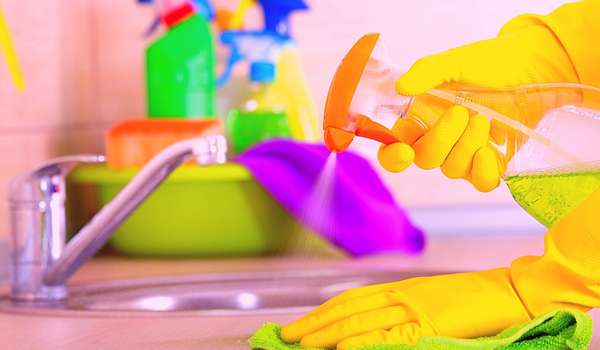








.png)




